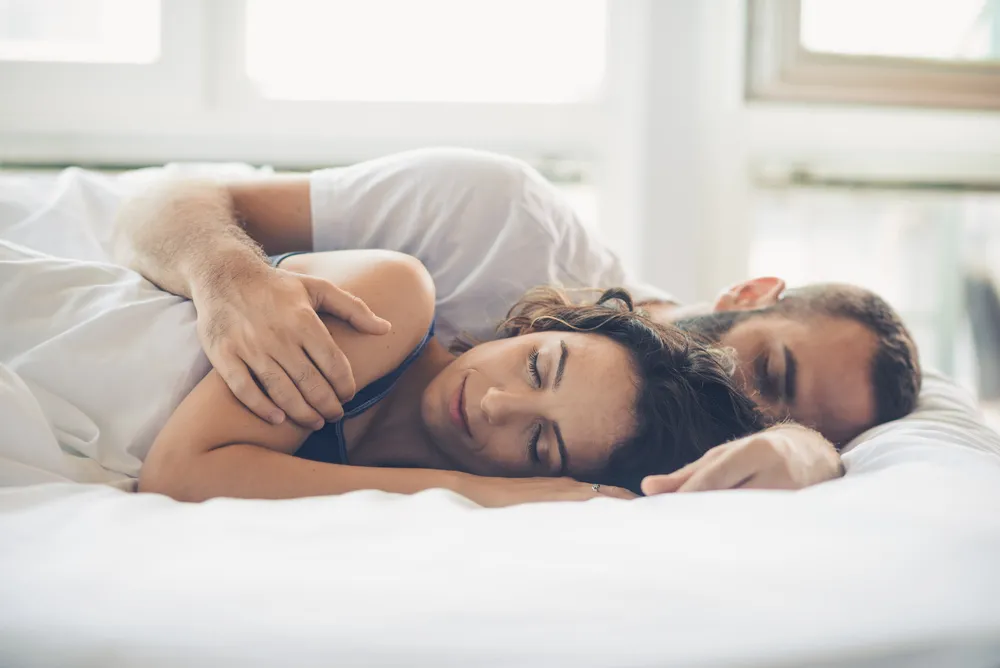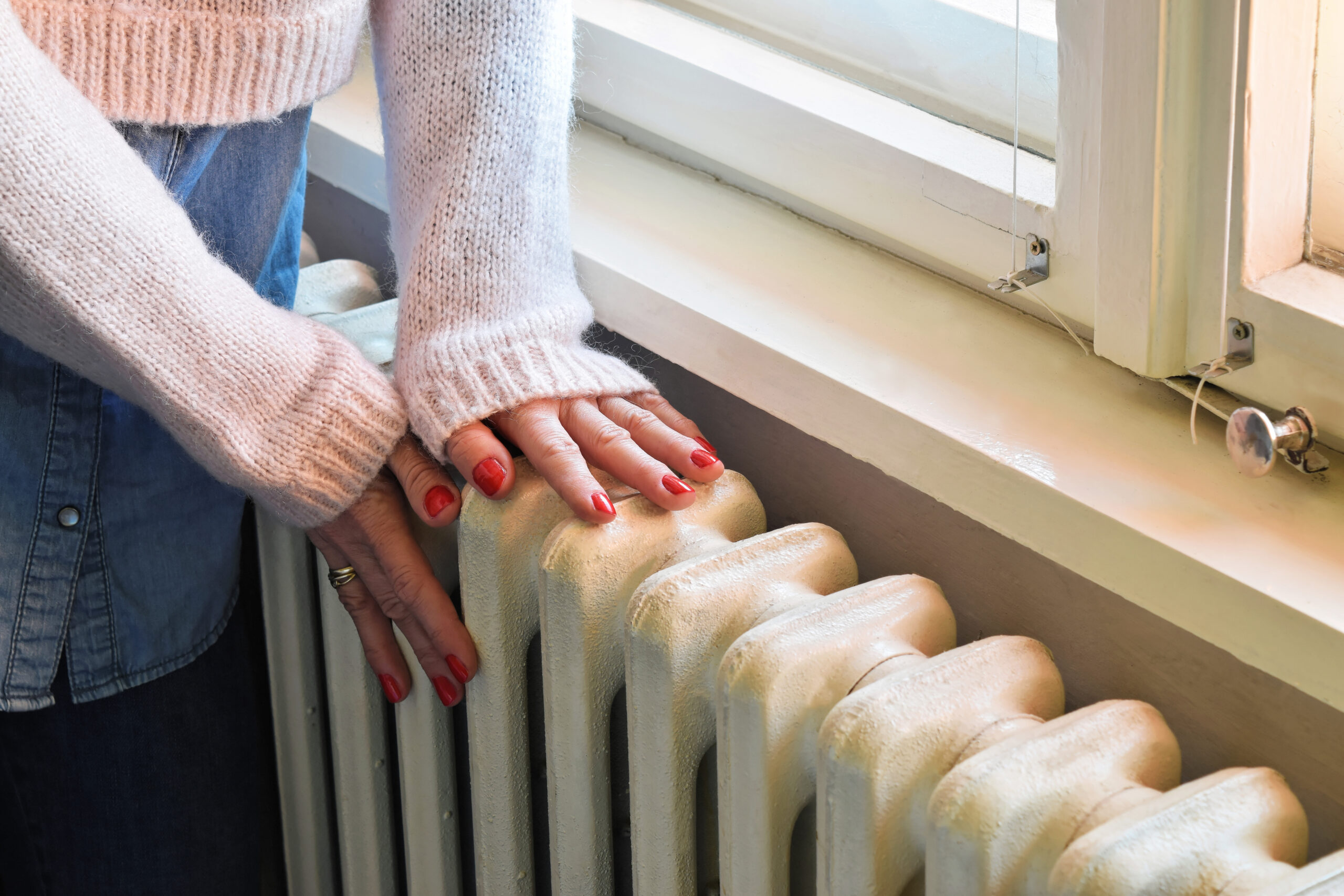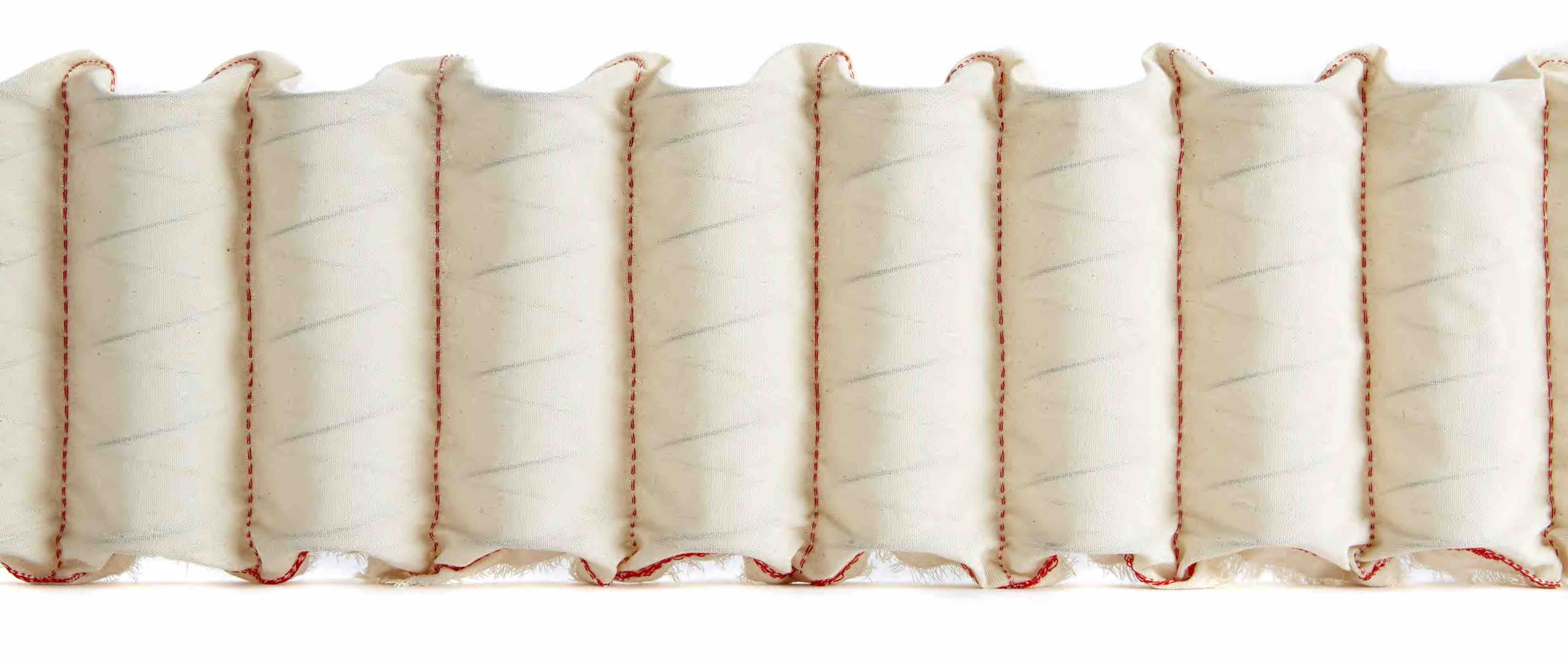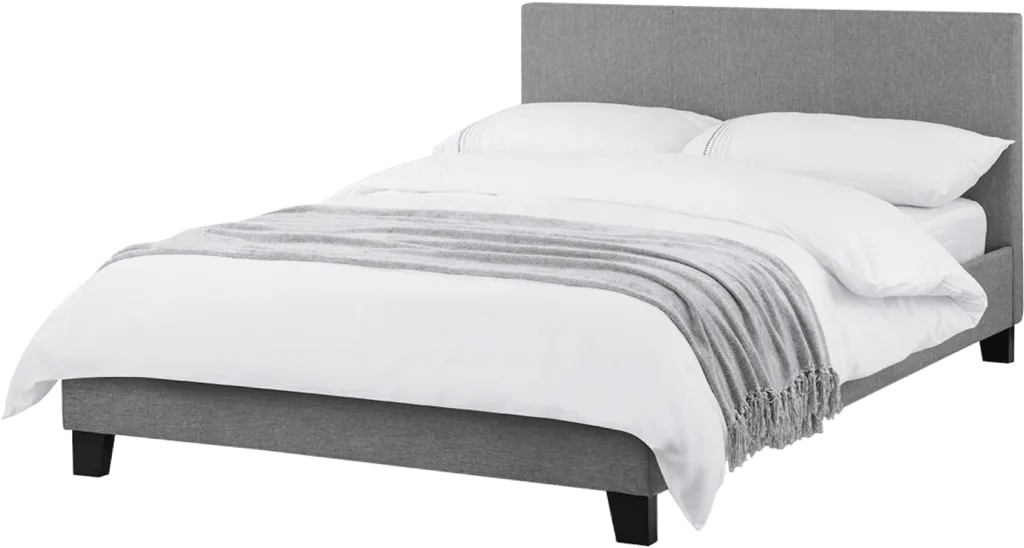Cold Shower vs. Hot Shower: Which is Better Before Bed?
Do you prefer a hot or cold shower in the evening before bed? Or do you not have a shower or bath at all until the morning? Each sleeper has different bedtime routines, but did you know that there is research to show that a pre-bed time shower could actually help you achieve a deeper, higher quality sleep score each night? Leading to you feeling more refreshed the next day?

Our sleep experts here at John Ryan By Design walk you through the science behind the differences between taking a cold or hot shower before bedtime. That way, you’re not getting yourself all chilly or hot and bothered without understanding the science behind taking a shower to help you sleep easier!
1. Cold Shower Before Bed
Cold showers, also known as contrast showers, involve exposure to water temperatures ranging from cool to cold. Advocates of cold showers tout various health benefits, including improved circulation, reduced inflammation, and enhanced mood.
Research suggests that exposure to cold water triggers the release of endorphins, leading to a sense of alertness and increased energy levels. Cold showers may also promote better sleep by lowering core body temperature, a key factor in the body’s natural sleep-wake cycle.

Cold exposure, such as taking a cold shower, can lower core body temperature. Therefore, the cooling effect induced by a cold shower might signal to the body that it’s time for sleep, potentially improving sleep onset and quality.
It goes without saying that before trying cold water exposure, always seek medical advice first if you are unsure. Let’s have a look at some of the benefits before you decide if you want to try it out.
Benefits of Cold Shower Before Bed
Cold showers have been known for their invigorating and refreshing effects, which can help improve the quality of your sleep when used regularly before bed. Let’s delve into the research-backed benefits and drawbacks of taking a cold shower before bed.
You don’t need to ensure the shower is ice cold, either. You can start gradually by reducing the temperature to 25 degrees Celsius and then down to 15 for the ultimate chilly ice-cold shower. A cold shower, by definition, is anything from 20 degrees celsius and below.
i) Enhanced Sleep Quality
Research suggests that exposure to cold water before bedtime can lead to improved sleep quality and duration. A study published in the journal PLOS One found that cold water immersion before sleep can decrease the time it takes to fall asleep and enhance overall sleep efficiency. The cooling effect of cold water may help lower core body temperature, signalling to the brain that it’s time to rest.
ii) Improved Circulation
Cold showers stimulate blood flow and circulation throughout the body. The sudden exposure to cold water causes blood vessels to constrict, redirecting blood flow to vital organs and tissues. This increase in circulation not only promotes overall cardiovascular health but also helps facilitate the removal of metabolic waste products from muscles, reducing inflammation and soreness.

iii) Mood Enhancement
Cold showers are renowned for their ability to boost mood and mental alertness. The shock of cold water triggers the release of endorphins, neurotransmitters that promote feelings of happiness and well-being. Additionally, cold showers have been shown to activate the sympathetic nervous system, leading to a temporary increase in energy levels and mental clarity.
iv) Stress Reduction
The invigorating sensation of a cold shower can help alleviate stress and anxiety, providing a natural remedy for relaxation and mental rejuvenation. Cold water exposure activates the body’s stress response system, leading to the release of stress hormones like adrenaline and cortisol. Over time, regular cold showers may help individuals better cope with daily stressors and improve overall resilience.
Drawbacks of Cold Shower Before Bed
Let’s be honest: not everyone is going to relish the thought of an ice-cold shower, least of all before bedtime. In fact, with cold showers, you will need to build up to them using some tried and tested techniques (listed further down in this article). There are a few obvious and not-so-obvious drawbacks to taking cold showers before bed to look at more deeply.
i) Discomfort
The sudden shock of cold water can be uncomfortable, especially for individuals unaccustomed to cold exposure. Some people may find it challenging to endure the initial discomfort of a cold shower, particularly before bedtime when the body is already in a relaxed state. Shivering, shaking, and tingling can put off anyone considering taking a cold shower. If you think this is going to be your immediate reaction, then consider a warm pre-bed shower instead.

ii) Potential for Sleep Disruption
While cold showers can promote better sleep quality for many individuals, some may experience sleep disruption or discomfort due to the stimulating effects of cold water immersion. One must gauge individual tolerance levels and preferences when incorporating cold showers into a bedtime routine.
iii) Skin Irritation or Raynauds Syndrome
Prolonged exposure to cold water may cause skin dryness, irritation, and sensitivity, particularly in individuals with preexisting or sensitive skin conditions. To mitigate potential skin issues, it’s advisable to limit the duration of cold showers and use gentle, hydrating skincare products afterwards. If you have sensitive skin or Raynaud’s syndrome, then a cold shower is definitely not advisable, as this can actually keep you awake, especially if you struggle to keep your hands and feet warm at the best of times.

How to train yourself to take cold showers
Training yourself to take cold showers can be a gradual process that involves building tolerance and adjusting your mindset. If you want to see how it works for you and improve your sleep quality, we have a few steps you can follow below to start the gradual process of using cold shower therapy for sleep improvements.
Here are some steps to help you ease into cold shower therapy:
1. Start Gradually
Begin by incorporating brief bursts of cold water at the end of your regular warm showers. Start with just a few seconds of cold water and gradually increase the duration as you become more comfortable.
2. Set Incremental Goals
Set achievable goals for increasing the duration of cold water exposure. For example, aim to increase the cold water duration by 10 seconds each day or week until you reach your target time.

3. Focus on Breathing
Practice deep breathing techniques to help you relax and stay calm during cold water exposure. Take slow, deep breaths to regulate your heart rate and reduce feelings of discomfort.
4. Visualize Success
Visualize yourself successfully completing a cold shower before you step in. Focus on the invigorating sensation of the cold water and the positive benefits it will bring to your body and mind.
5. Use a Shower Timer
Use a timer or stopwatch to monitor the duration of your cold showers. This allows you to track your progress and gradually increase your tolerance over time.

6. Embrace the Discomfort of Cold Shower Therapy
Accept that cold showers may be uncomfortable at first, but remind yourself of the potential benefits, such as improved circulation, mood enhancement, and stress reduction.
7. Stay Consistent
Consistency is key to building tolerance and reaping the benefits of cold shower therapy. Make it a regular part of your daily routine and stick to your cold shower schedule, even on days when you may not feel like it.
8. Listen to Your Body
Pay attention to how your body responds to cold showers and adjust accordingly. If you experience any adverse reactions or discomfort, scale back the intensity or duration of your cold showers until you feel more comfortable.
With patience, perseverance, and a positive attitude, you can gradually train yourself to embrace cold showers as a refreshing and revitalizing part of your daily routine.
What is the Wim Hof Cold Water Method?
The Wim Hof Method of cold immersion, developed by Dutch athlete Wim Hof, involves a combination of breathing exercises, cold exposure, and mindset techniques. Similarly to the cold shower technique, this technique has become rather infamous given Wim’s exposure to the media.
The method aims to improve physical and mental well-being by harnessing the body’s natural responses to cold. Central to the practice is a specific breathing technique that involves deep, rhythmic breaths followed by periods of breath retention. This breathing pattern is believed to optimize oxygen levels in the body and induce a state of calmness and focus.

Cold exposure, typically in the form of cold showers or ice baths, is another key component of the method. Cold exposure is thought to activate the body’s thermoregulatory system, boost circulation, and strengthen the immune system. Through regular practice, individuals may develop increased tolerance to cold, improved stress management, and enhanced resilience.
The Wim Hof Method emphasizes the mind-body connection and encourages practitioners to embrace discomfort, cultivate mindfulness, and tap into their innate capacity for resilience and vitality. Always seek medial advice and don’t go swimming in cold water alone or without the correct swim gear and training.
2. Hot Shower Before Bed
On the other hand, hot showers are revered for their ability to soothe sore muscles, alleviate stress, and promote relaxation. The warmth of hot water helps dilate blood vessels, improving blood circulation and relieving tension in the body. Hot showers are also known to facilitate the release of endorphins, promoting feelings of comfort and tranquillity.
Taking a hot shower before bed can be especially beneficial for individuals looking to unwind after a long day and prepare both body and mind for sleep. The rise in body temperature induced by a hot shower triggers a process known as temperature regulation, whereby the body cools down rapidly afterwards, signalling to the brain that it’s time to sleep. This drop in core body temperature initiates the body’s natural sleep cycle, making it easier to transition into deep and restorative sleep.
The best shower temperature for relaxation and promoting sleep is typically around 37-38°C (98-100°F). This temperature range is close to the body’s natural temperature and is comfortable for most people.
Benefits of Warm Shower Before Bed
We all know that a warm bath can make us feel sleepy afterwards, and the same science backs up that warm showers have a similar effect to help you sleep better. Let’s take a deeper splash into why warm showers can help you get to sleep faster and stay asleep longer each night.
1. Relaxation and Stress Reduction
Warm showers have been shown to promote relaxation by helping to soothe tense muscles and alleviate stress. The heat from the water helps to increase blood flow to muscles, promoting relaxation and reducing feelings of tension and anxiety. A study published in the Journal of Physiological Anthropology found that warm water immersion before bedtime can lead to improvements in mood and overall relaxation, contributing to better sleep quality.

In fact, bathing or showering conditions that produce a 0.9 °C increase in sublingual temperature (raise your core body temperature before bed) appear effective for falling asleep and sleep quality because your core temperature shows a greater drop afterwards, which causes that sleepy feeling.
ii) Improved Sleep Quality
The calming effects of a warm shower can help signal to the body that it’s time to unwind and prepare for sleep. Warm water can help lower core body temperature, a key factor in the body’s natural sleep-wake cycle. Research suggests that a drop in core body temperature initiates the body’s sleep process, making it easier to fall asleep and experience restorative sleep cycles throughout the night.
iii) Muscle Relief and Recovery from Warm Showers
Warm water can help alleviate muscle soreness and promote faster recovery after physical activity or a long day of work. The heat from the water helps to increase blood circulation to muscles, delivering essential nutrients and oxygen to aid in repair and recovery. This can be especially beneficial for athletes or individuals with physically demanding jobs who may experience muscle fatigue and soreness.

iv) Skin Hydration and Cleansing
Warm water can help open pores and cleanse the skin, allowing for the removal of dirt, oil, and impurities. The moisture from the water helps to hydrate the skin and promote a healthy complexion. Additionally, warm showers can help soften the skin, making it easier to exfoliate and remove dead skin cells, resulting in smoother, more radiant skin.
Drawbacks of Warm Shower Before Bed
While hot showers are often sought after for their relaxing and therapeutic effects, indulging in them before bedtime may come with some unexpected drawbacks. While they offer immediate comfort and relaxation, their impact on sleep quality and overall well-being deserves closer examination.
In this exploration, we delve into the potential drawbacks of indulging in hot showers before heading to bed. From disrupted sleep patterns to skin and hair concerns, let’s see why hot showers may not suit you.
i) Potential for Increased Body Temperature
While warm showers can initially help lower core body temperature, prolonged exposure to warm water may lead to an increase in body temperature. Elevated body temperature can interfere with the body’s ability to initiate sleep and may result in restlessness or difficulty falling asleep. Warm showers are therefore not advised for hot sleepers or those who suffer from night sweats.

ii) Dry Skin and Hair
Frequent exposure to warm water can strip the skin and hair of natural oils, leading to dryness and irritation. Individuals with sensitive skin or conditions such as eczema may be more prone to experiencing dryness and discomfort after warm showers. To mitigate this, it’s essential to moisturize the skin and hair after showering to help restore hydration and prevent dryness.
iii) Relaxation Response Variability
While warm showers generally promote relaxation and stress reduction, individual responses may vary. Some individuals may find that warm showers invigorate them or increase alertness, making it more challenging to unwind and prepare for sleep. It’s essential to pay attention to your body’s cues and adjust your bedtime routine accordingly.


Why do hot showers or baths before bedtime help you sleep?
Hot baths induce sleepiness through temperature regulation, muscle relaxation, stress reduction and improved circulation. The warmth of the water raises body temperature, signalling to the brain that it’s time for sleep as the body cools down afterwards. Which in turn released endorphins such as dopamine and serotonin.
Dopamine and serotonin play essential roles in regulating sleep-wake cycles and promoting feelings of relaxation and drowsiness. Serotonin, known as the “happy hormone,” helps regulate mood and promotes a sense of calmness. Increased serotonin levels contribute to feelings of relaxation and can aid in falling asleep.
Dopamine, often associated with reward and pleasure, also influences sleep by regulating the body’s internal clock and promoting wakefulness during the day. However, dopamine levels typically decrease in the evening, allowing serotonin to exert its calming effects and prepare the body for sleep. The balance between dopamine and serotonin helps synchronize the body’s circadian rhythm, facilitating the transition from wakefulness to sleep. This is the same for hot drinks like Hot chocolate before bed as well.
Additionally, the heat of a hot shower or bath before bed relaxes muscles, and the improved blood circulation enhances oxygen delivery to tissues, further aiding in relaxation.
What if your mattress is keeping you awake instead?
We’ve discussed the benefits of having a hot or cold shower before bed to help increase your sleep quality, but what if neither of these things is working? If you’re still tossing and turning or struggling to sleep each night, your mattress or bedroom may be at fault.
Checking if you need a new mattress involves assessing key factors related to your nighttime:
- Sleep comfort
- Mattress support
- Overall sleep quality.
Firstly, consider the age of your current mattress; most mattresses have a lifespan of about 7-10 years, so if yours is nearing or past this timeframe, it may be time for a replacement.
Next, evaluate how well you sleep on your mattress. Notice if you wake up feeling stiff, sore, or tired, as these could be signs that your mattress is no longer providing adequate support especially if you are on the wrong spring tension for your body weight, which we detail below.
| Spring Tension | Wire diameter (Gauge) | Weight Range |
|---|---|---|
| Soft | 1.2mm | Bespoke Tension (Please Call) |
| Medium | 1.4mm | Upto 16 stone |
| Firm | 1.6mm | 16 stone plus |
| Extra Firm / Orthopaedic | 1.9mm | 20 stone plus |

Take note of any visible signs of wear and tear, such as sagging, lumps, or indentations, which can compromise the mattress’s ability to offer proper support.
Lastly, consider changes in your lifestyle or body, such as weight fluctuations or health conditions, which may necessitate a different type of mattress for optimal comfort and support. Regularly assessing these factors can help you determine if it’s time to invest in a new mattress tailored to your sleep needs.
If you answer yes to the above, then you may like to read our guide to choosing a new mattress here.
In the debate between cold showers and hot showers before bed, both options offer compelling benefits for sleep and overall well-being. Cold showers may promote alertness, improve circulation, and lower core body temperature, facilitating faster onset and better quality of sleep.
Conversely, hot showers can induce relaxation, alleviate muscle tension, and initiate the body’s natural sleep cycle, leading to a more restful and rejuvenating night’s sleep. It really does depend on your individual preferences and whether you prefer to be colder going to sleep or warmer!
If you’re still confused about whether you have the right mattress get in touch with our small expert mattress team to assist. We can help compare any mattress models you may be looking at and provide additional reassurance and guidance.
You can call us on 0161 437 4419 or drop us a line in the mattress contact form below.
Sleep well!


Ask us a question.
There are over 6000 questions and answers submitted by you on all questions about mattresses and bed problems. Enter a keyword such as Vi Spring, John Lewis beds, bad back or Memory Foam and see if your question has already been answered.
You can filter popular questions by the categories below. If you can’t find an answer, ask a new question below. We aim to respond to all questions within one working day.








































 Mattresses
Mattresses  Take our mattress quiz
Take our mattress quiz  Contact
Contact  About us
About us 



